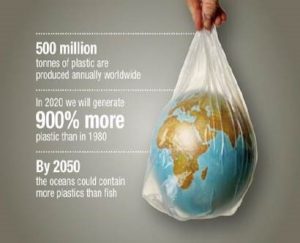Working together to tackle climate change

Andy Simpson, Packed Products Director for Hanson Cement and BMBI’s Expert for Cement & Aggregates comments on the importance of working together to tackle climate change.
2020 will go down in history as the year that a pandemic brought the globe to a standstill, but it should also be remembered for being the year that we really took notice of the impact that human activity has on the planet – and took a stance to do something about it.
Climate change has been a hot topic for the construction industry for some time, however this has largely been in relation to energy efficiency in buildings and low carbon products.
 Using cleaner energy and using it more effectively is only half of the story, as we – the construction industry – cannot judge our sustainability solely on the performance of the buildings we help to deliver. Every contractor and supplier in the industry is a consumer of energy and resources, and our green credentials are in desperate need of an upgrade.
Using cleaner energy and using it more effectively is only half of the story, as we – the construction industry – cannot judge our sustainability solely on the performance of the buildings we help to deliver. Every contractor and supplier in the industry is a consumer of energy and resources, and our green credentials are in desperate need of an upgrade.
In the UK, the construction industry is the second largest consumer of plastic after the packaging industry, and we are responsible for 59% of the UK’s 202.8 million tonnes of waste ever year.
The Considerate Constructor scheme states:
“Contractors should protect and enhance the environment by identifying, managing and promoting environmental issues, seeking sustainable solutions, minimising waste, the carbon footprint and resources”.
How can contractors make more environmentally considerate decisions if we are not offering them greener choices?
Hanson recently introduced Tough Bag – the toughest paper cement bag on the market. Our eco-friendly bag uses just 4g of plastic compared to 90g for a fully plastic version, and its carbon footprint is 2.5 times lower. It’s more cost-effective for the end user too, as the PRN costs are significantly lower than all-plastic alternatives.
But what begins as a small switch in packaging – it contains the same Multicem premium cement as the original plastic packaging – actually has a huge environmental impact. Its greener to produce and there’s less plastic waste going to landfill or polluting the oceans.
From a sustainability point of view the Tough Bag makes sense, but it’s also a good financial choice. The Environmental Bill 2019-2021 currently being passed through parliament will look to introduce targets for four key areas including resource efficiency and waste reduction.
While the exact details of the Bill’s targets will not be known until it is passed, its Resource & Waste strategy includes initiatives such as a tax on plastic packaging which contains less than 30% recycled plastic, minimum requirements to encourage resource-efficient design, and the introduction of the ‘polluter pays’ principle – whereby a manufacturer must take responsibility for the full costs of disposing of the packaging they place in the market.
Ultimately, the additional costs for less sustainable packaging will need to be passed on to customers or absorbed by the supply chain – both are undesirable options, particularly in the current trading conditions.
Soon, there will be no alternative but to consider sustainability as a driving force in all of the construction industry’s activities or be prepared to pay the penalty. From the products we make, to the way they are packaged, how they are used and what happens to them at the end of their lifecycle – everything must be considered through green tinted glasses for the benefit of our businesses and the environment.
Sustainability is not an issue which is going away and in the run up to COP26 – the 2021 United Nations Climate Change Conference being held in Glasgow – the spotlight will be firmly pointed towards the environmental performance of the UK, its people and its industries. In this most extraordinary year, we need to once again join forces to tackle the threat of climate change.



